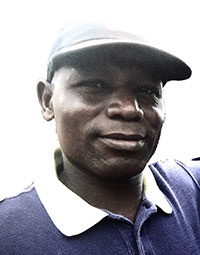Journalist Lohé Issa Konaté has been imprisoned in Burkina Faso since he was convicted in October of criminal defamation over articles in private weekly L’Ouragan alleging corruption and abuse of power at the office of the public prosecutor. In May, an appeals court rejected his appeal and upheld the 12-month sentence, according to defense counsel Halidou Ouedraogo. Now, after exhausting all domestic legal remedies, Konaté has filed a complaint with the African Court on Human and Peoples’ Rights in Tanzania.
Lawyers for the London-based Media Legal Defence Initiative filed a complaint on June 16 seeking Konaté’s release and a ruling affirming that his sentence violates his right to freedom of expression under Burkina Faso’s constitution. The court transmitted the complaint to the government of Burkina Faso this month, according to Nani Jansen, senior legal counsel with the Initiative. The lawyers are also asking the court to lay down a marker for all states that imprisonment is not an acceptable sanction for defamation and that criminal defamation laws should be reformed and replaced with appropriate civil remedies.
Across Africa, criminal defamation laws are in active use against journalists, and Konaté’s case coincides with a campaign by the African Commission’s special rapporteur on freedom of expression to decriminalize defamation.
The African Court on Human and Peoples’ Rights is a relatively new institution of the African Union. Since its inception in 2006, 26 out of 54 member states of the Union have ratified the protocol establishing the court, according to news reports. Only six member states have issued a special declaration recognizing the authority of the court to receive complaints from individuals and nongovernmental organizations: Malawi, Mali, Rwanda, Ghana, Tanzania and Burkina Faso. In June, the court ruled it would move forward on a complaint brought on behalf of the murdered journalist Norbert Zongo, whose 1998 assassination was never fully investigated by the Burkinabe authorities.
